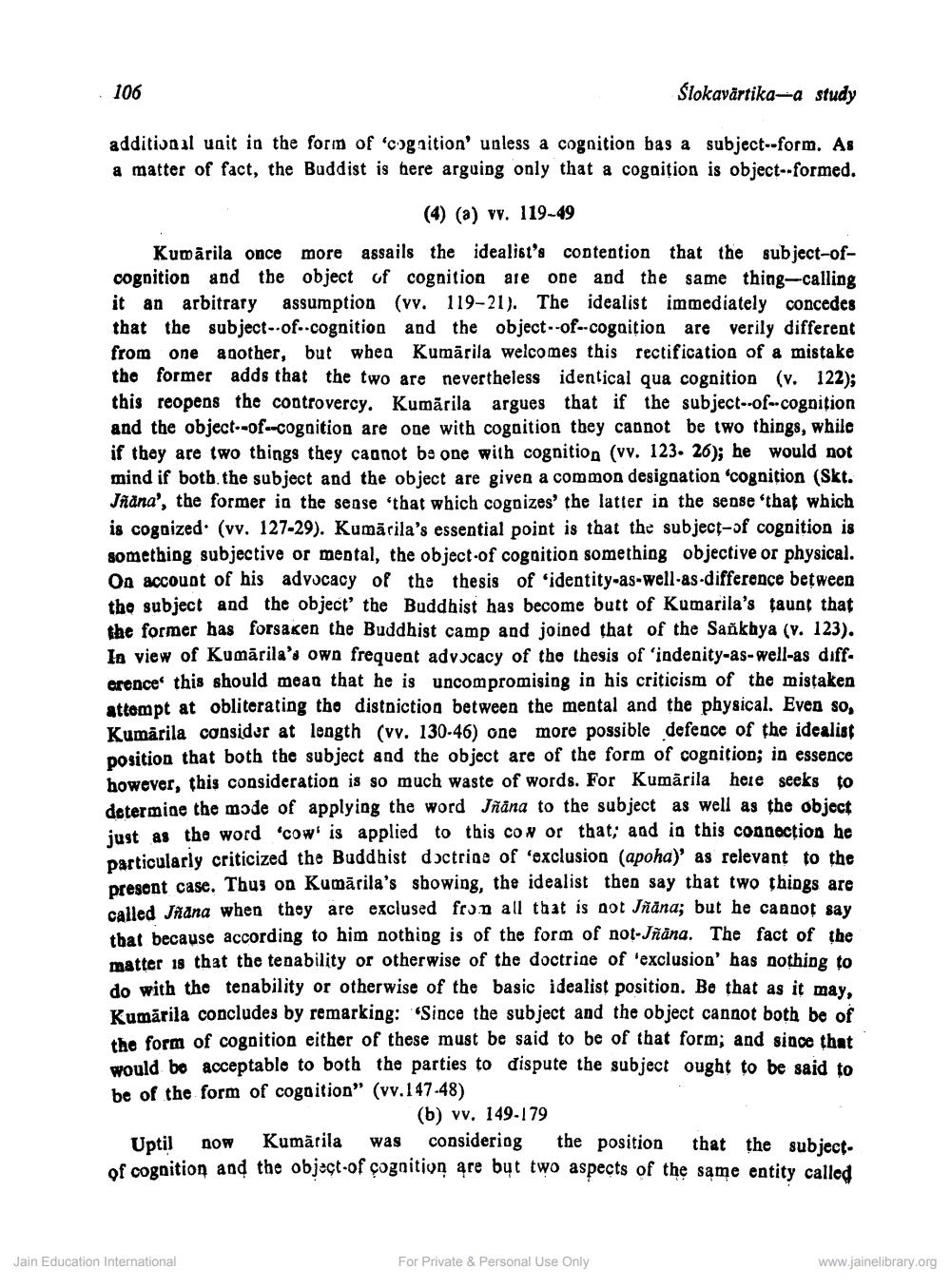________________
106
Slokavärtika--a study
additivaal unit in the form of 'cognition unless a cognition bas a subject--form. As a matter of fact, the Buddist is here arguing only that a cognition is object--formed.
(4) (a) v. 119-49
Kumärila once more assails the idealist's contention that the subject-ofcognition and the object of cognition are one and the same thing-calling it an arbitrary assumption (vv. 119-21). The idealist immediately concedes that the subject--of-cognition and the object--of-cognition are verily different from one another, but when Kumārila welcomes this rectification of a mistake the former adds that the two are nevertheless identical qua cognition (v. 122); this reopens the controvercy. Kumärila argues that if the subject--of-cognition and the object--of-cognition are one with cognition they cannot be two things, while if they are two things they caonot be one with cognition (vv. 123. 26); he would not mind if both the subject and the object are given a common designation 'cognition (Skt. Jñåna', the former in the sense that which cognizes the latter in the sense that which is cognized. (vv. 127-29). Kumārila's essential point is that the subject-of cognition is something subjective or mental, the object-of cognition something objective or physical. On account of his advocacy of the thesis of 'identity-as-well-as-difference between the subject and the object' the Buddhist has become butt of Kumarila's aunt that the former has forsaken the Buddhist camp and joined that of the Sankhya (v. 123). In view of Kumārila's own frequent advocacy of the thesis of 'indenity-as-well-as difference this should mean that he is uncompromising in his criticism of the mistaken attempt at obliterating the distniction between the mental and the physical. Even so, Kumārila consider at length (vv. 130-46) one more possible defence of the idealist position that both the subject and the object are of the form of cognition; in essence however, this consideration is so much waste of words. For Kumārila here seeks to determine the mode of applying the word Jñana to the subject as well as the object just as the word 'cow is applied to this cow or that; and in this connection he particularly criticized the Buddhist doctrine of 'exclusion (apoha)' as relevant to the present case. Thus on Kumārila's showing, the idealist then say that two things are called Jhana when they are exclused frun all that is not Jñana; but he cannot say that because according to him nothing is of the form of not-Jñana. The fact of the matter is that the tenability or otherwise of the doctrine of 'exclusion' has nothing to do with the tenability or otherwise of the basic idealist position. Be that as it may, Kumărila concludes by remarking: Since the subject and the object cannot both be of the form of cognition either of these must be said to be of that form; and since that would be acceptable to both the parties to dispute the subject ought to be said to be of the form of cognition” (vv.147-48)
(b) vv. 149-179 Until now Kumārila was considering the position that the subjectof cognition and the object-of cognition are but two aspects of the same entity called
Jain Education International
For Private & Personal Use Only
www.jainelibrary.org




